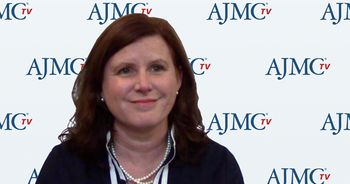
The proposed changes to the Medicare Shared Savings Program could prevent the program from driving broad change to value-based care across the country, according to Katherine Schneider, MD, MPhil, FAAFP, president and CEO of Delaware Valley ACO.

The proposed changes to the Medicare Shared Savings Program could prevent the program from driving broad change to value-based care across the country, according to Katherine Schneider, MD, MPhil, FAAFP, president and CEO of Delaware Valley ACO.

Somatostatins have been the most game-changing drug in the treatment landscape of gastroenteropancreatic neuroendocrine tumors, explained Scott Paulson, MD, co-director of the Gastrointestinal Research Program for The US Oncology Network, medical director for the Neuroendocrine Research and Treatment Center at Baylor Charles A. Sammons Cancer Center, Baylor University Medical Center.

One of the big issues that policy makers need to pay more attention to is how to reform Medicare, which has about 10 years remaining until the baby boomers aging into the program now start to see increased medical costs and needs, said Joe Antos, PhD, the Wilson H. Taylor Resident Scholar in Health Care and Retirement Policy at the American Enterprise Institute.

To speak about the success and continued development of Priority Health's payment reform model in cancer care, John Fox, MD, medical director at Priority Health, joined Dennis Zoet, chief business development officer at Cancer and Hematology Centers of Western Michigan, on a panel at the Community Oncology Alliance Payer Exchange Summit.
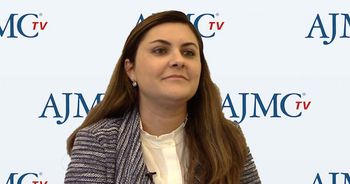
Heloisa Soares, MD, assistant professor, University of New Mexico Cancer Center-Albuquerque, outlines current barriers to achieving positive outcomes in neuroendocrine tumors (NETs) and what's in store for the future.
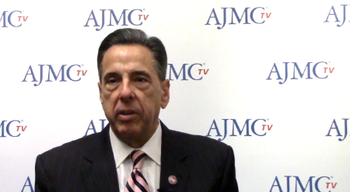
I’ve seen one case recently where a patient received $172,000 of drugs that were totally wasted. So, we’re going to be looking at this, we’re going to be looking at these middlemen getting in the way of the patient and the physician making a decision about their therapy, explained Ted Okon, executive director of COA.
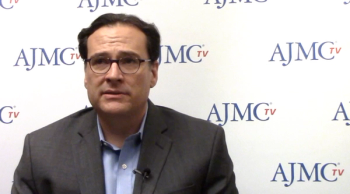
Looking at total cost of care is difficult and figuring out what the practice is responsible for and not responsible for can be very difficult to do, said Lalan Wilfong, MD, executive vice president of Quality Programs at Texas Oncology.
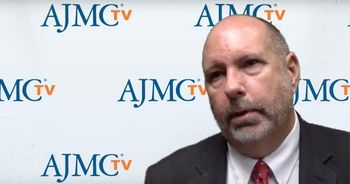
A patient has their own set of values, providers have their own set of values, and the people that pay for it have their own set of values. So, [we all need to] come together, explains Bo Gamble, Director Of Strategic Practice Initiatives at the Community Oncology Alliance.

At the Community Oncology Alliance Payer Exchange Summit, healthcare policy experts from a government relations firm and from the pharmaceutical industry provided an update on the progress with value-based agreements and also discussed the challenges posed by the existing infrastructure and operational framework.
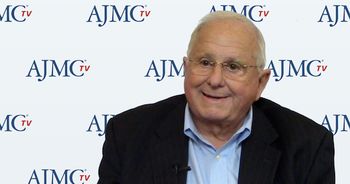
There are different ways to measure how Medicare Shared Savings Program (MSSP) accountable care organizations (ACOs) have saved money, and the way used can drastically affect the amount of savings reported, explained Clif Gaus, ScD, president and CEO of the National Association of ACOs.

I’m not quite certain that the system is equipped to provide a comfort level for clinicians that they’re ready to take on two-sided risk, explained Lyn Fitzgerald, senior vice president, US & Global Development at the National Comprehensive Cancer Network (NCCN).
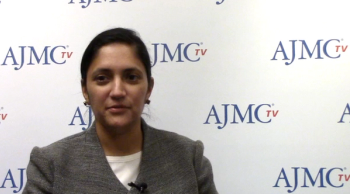
We've noticed that all of these transformation activities– care transformation, quality improvement, are all actually working, explained Kavita Patel, MD, MS, non-resident senior fellow at the Brookings Institution.

"The cost of cancer care is rising dramatically," said Lalan Wilfong, MD, executive vice president of quality programs at Texas Oncology.
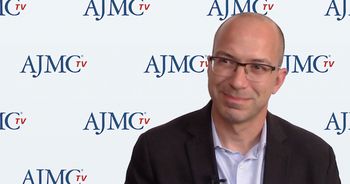
Systems, groups, and practices that haven’t yet joined the accountable care organization (ACO) movement will find it harder to do so if the proposed changes to the Medicare Shared Savings Program (MSSP) take effect, said Rob Fields, MD, assistant profession, family medicine and community health, Icahn School of Medicine at Mount Sinai, and senior vice president, chief medical officer, population health at Mount Sinai Health System.

The Community Oncology Alliance (COA) has been working with its member practices and some payer partners who have successfully implemented innovative care delivery and payment models to develop a 2.0 version of CMS’ Oncology Care Model (OCM). A progress report was presented at COA’s Payer Exchange Summit held October 29-30 in Tyson’s Corner, Virginia.

While practice transformation is vital, community-based clinics continue to struggle with emergency department (ED) use, hospitalization, and risk stratification as they identify ways to reduce unnecessary expenditures within their Oncology Care Model (OCM) practice.

Medications for autism spectrum disorder should not replace an effective behavior plan, according to a presentation at Psych Congress 2018. A psychiatrist with 2 twin brothers with the disorder, as well as a daughter, shared her experiences in a presentation called “My Personal and Professional Journey Through Autism: Update on Autism Treatment Through the Lifespan.”
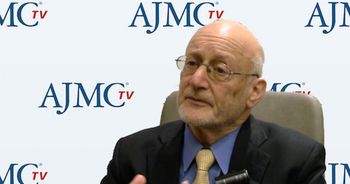
Patient and family engagement is important for ensuring positive clinical outcomes in schizophrenia, which can affect a patient's insight and judgement, explained John Kane, MD, professor and chairman, department of psychiatry, The Donald and Barbara Zucker School of Medicine at Hofstra/Northwell, The Zucker Hillside Hospital.
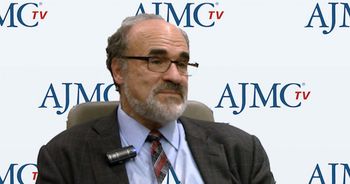
There are challenges with diagnosing attention-deficit/hyperactivity disorder (ADHD) and bipolar disorder because of overlapping symptoms, explained Michael First, MD, professor of clinical psychiatry, Columbia University New York State Psychiatric Institute.
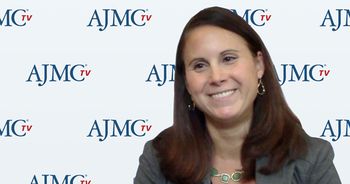
Some of the proposed changes to the Medicare Shared Savings Program align with things the National Association of ACOs had been asking for, said Allison Brennan, MPP, senior vice president of government affairs for the National Association of ACOs.

A phase 3 study of ALKS 3831 idemonstrated greater antipsychotic efficacy compared with placebo, as measured by rating scales, according to a poster presented at Psych Congress 2018.

Using multiple drugs to treat a single condition is growing, said Paul Zarkowski, MD, a clinical assistant professor at Harborview Medical Center and psychiatrist in Seattle, Washington, at Psych Congress 2018. But how much do we know about how well they work?

At Psych Congress 2018, 2 experts in the field of psychiatry squared off in a session called “The Great Debate in Contemporary Psychiatry: The Use of Antidepressants in Bipolar Disorder," about whether antidepressants should be used to treat patients with bipolar depression.

Disasters, whether they are natural disasters like hurricanes or mass shootings, are happening with increased frequency and at shorter intervals, and that means populations are being exposed to trauma more frequently, according to a presentation at Psych Congress 2018.

The proposed changes to the Medicare Shared Savings Program (MSSP) acknowledge the complexity of the program and bring more predictability and stability to MSSP, according to Katherine Schneider, MD, MPhil, FAAFP, president and CEO of Delaware Valley ACO.

What is the role of inflammation in major depressive disorder (MDD)? In a session called “What’s Hot: An Inflammatory Take on the Immune System in Psychiatry,” Charles L. Raison, MD, from the University of Wisconsin, Madison, presented recent findings in this area, including how subgroups of depressed individuals show increased levels of inflammatory biomarkers.

A survey of people with depression seeking information about their perspectives and experiences living with the disease found that even though most took antidepressants, 42% of patients did not find them helpful, according to a poster presented at Psych Congress 2018.

The core feature of internalized stigma is shame, and it leads to avoidance of treatment or help for patients with mental illness, explained Joseph McEvoy, MD, professor of psychiatry and health behavior, Medical College of Georgia.

In the last 30 years, there have been easier to prescribe, safer antidepressants for major depressive disorder, as well as the introduction of easy-to-learn approaches to therapy, but 40% or so of people suffering from depression aren’t in treatment, explained Michael Thase, MD, professor of psychiatry and director of the Mood and Anxiety Program at the University of Pennsylvania.

Postpartum depression is the most common obstetric complication, said Marlene Freeman, MD, yet there is a surprising level of debate over how to define it and missed opportunities for screening.

259 Prospect Plains Rd, Bldg H
Cranbury, NJ 08512
© 2025 MJH Life Sciences®
All rights reserved.
